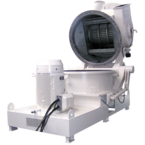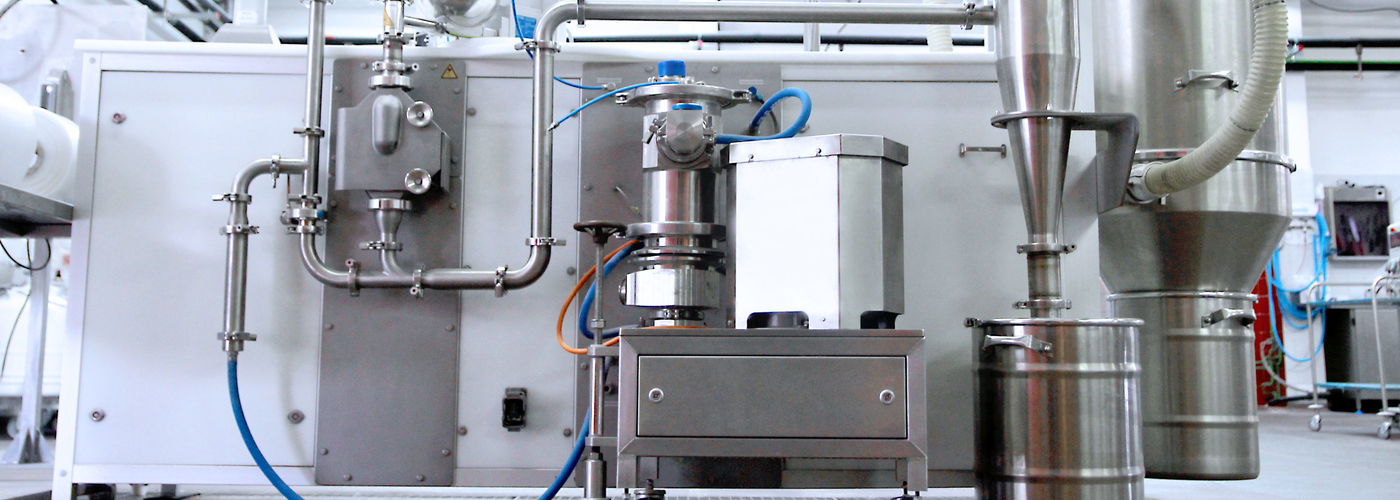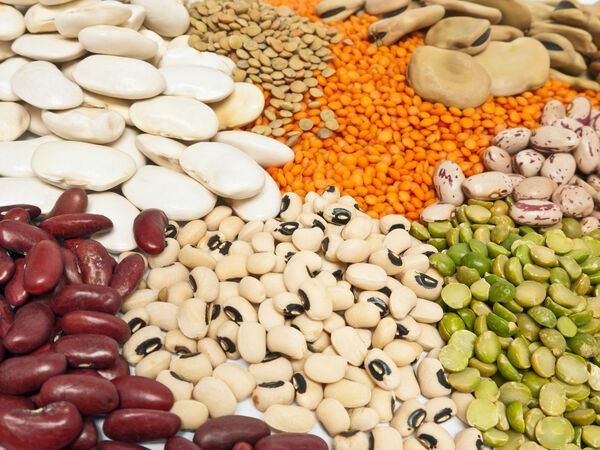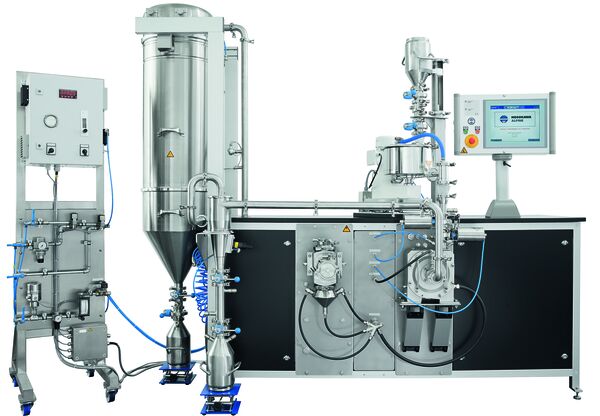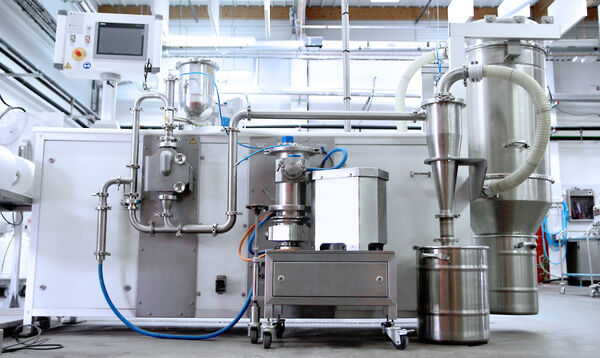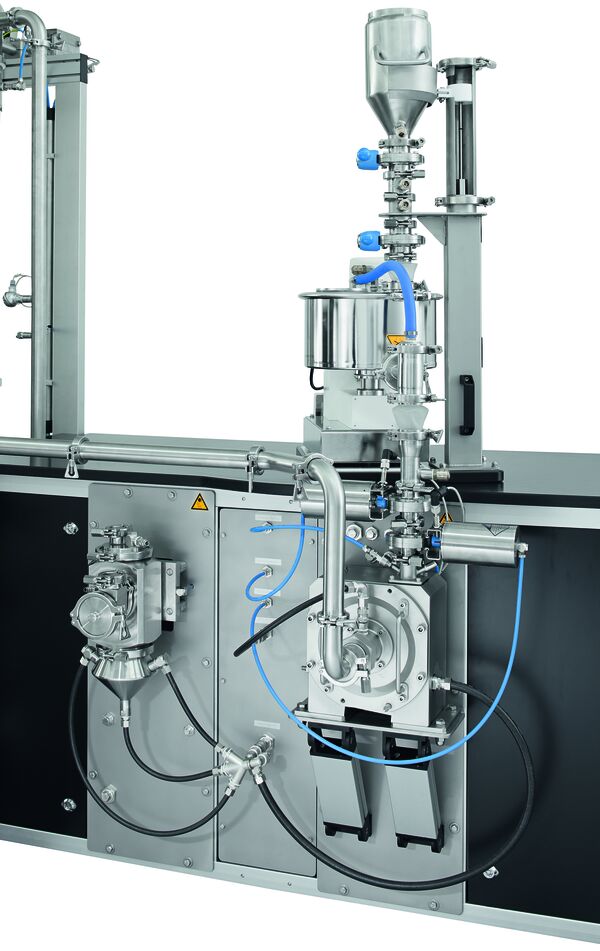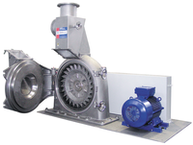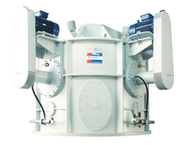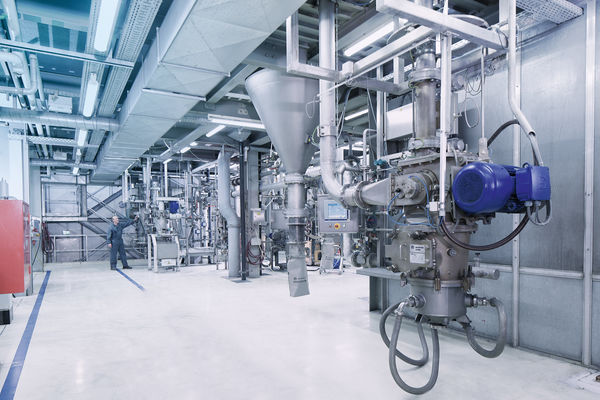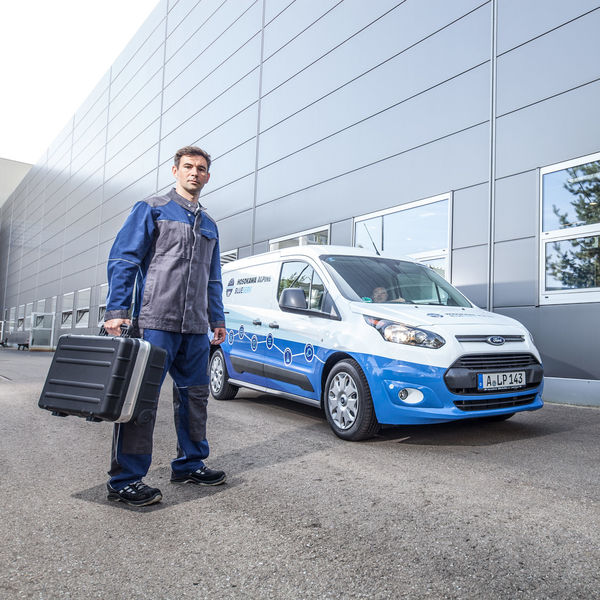The small-scale machines can be installed and changed quickly at the system corpus. A wide range of machine equipment e.g. different pin discs, plate beaters, nozzles and classifier wheels make it easy to try different adjustments to find the right processing solution.
Because all machines are engineered, machined and assembled by Hosokawa Alpine itself, the Multiprocessing System gives a good indication for a later production.
For a production scale-up, the test center of Hosokawa Alpine in Augsburg gives the possibility to run tests on bigger machine sizes up to several hundred kgs/h of material throughputs at 3000 sqm.
Connect science and industry for future protein supply
Looking into the future, the protein supply will be a challenge that must be solved from both the industry and research. For this reason, collaborations are getting more and more important to interlock science and process engineering.
“Hosokawa Alpine is a very professional organization and we are sure that in future IMPROVE & Hosokawa Alpine will continue to work closely in order to well serve our customers and to develop new processes.” Mr. Chereau said.
"The Multiprocessing System is the matching instrument to find the best sustainable food solution for processors of plant-based protein ingredients."
